British Prime Minister Boris Johnson has opened a major global climate summit, saying the world is strapped to a "doomsday device".
Mr Johnson likened an ever-warming Earth's position to that of fictional secret agent James Bond — strapped to a bomb that will destroy the planet and trying to work out how to defuse it.
He told leaders that "we are in roughly the same position" — only now the "ticking doomsday device" is real and not fiction.
EXPLAINED: What is COP26 and why does it matter?
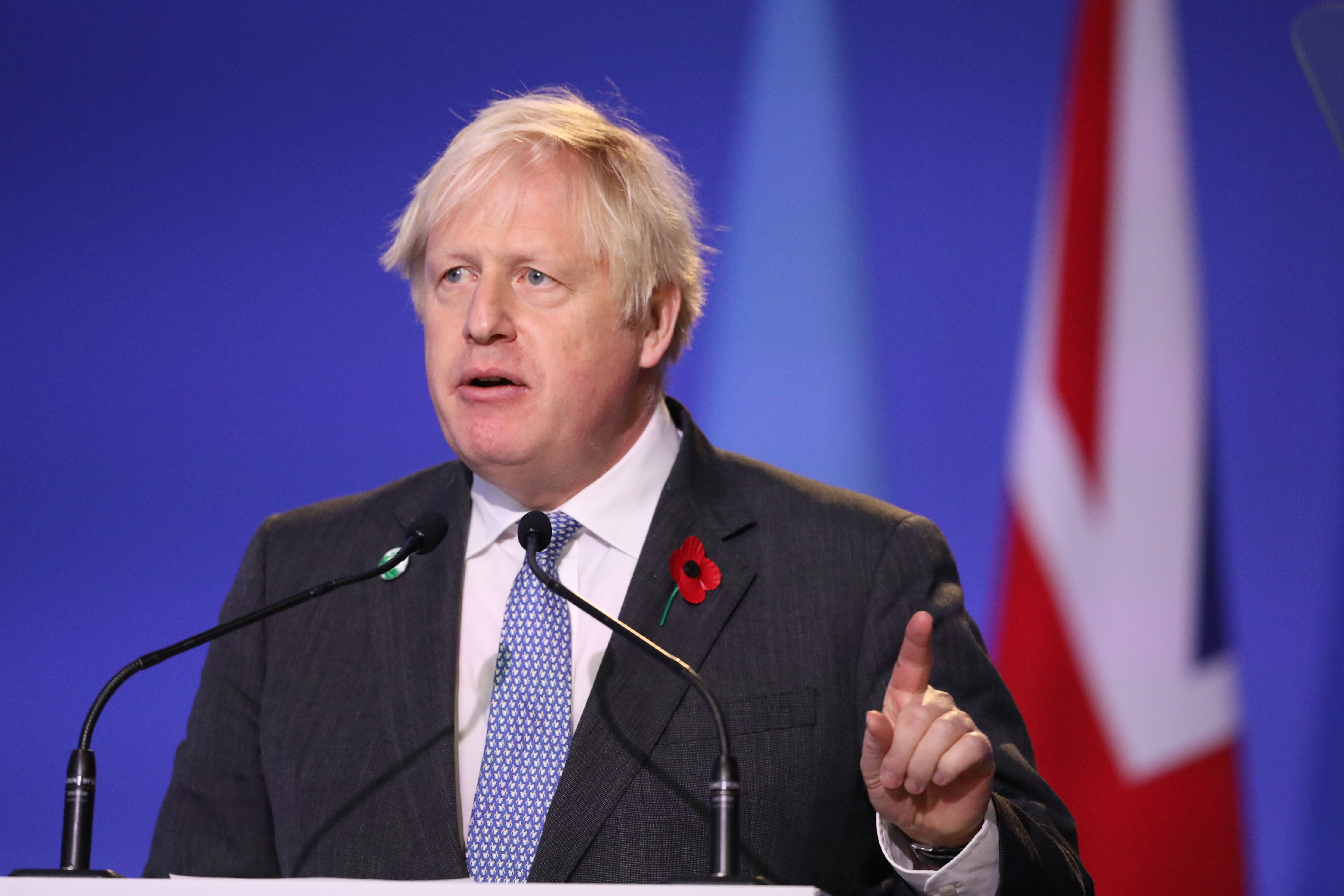
The threat is climate change triggered by the burning of coal, oil and natural gas, and he pointed out that it all started in Glasgow with James Watt's steam engine powered by coal.
He was kicking off the world leaders' summit portion of a UN climate conference, which is aimed at getting agreement to curb carbon emissions fast enough to keep global warming to 1.5 degrees below pre-industrial levels.
The world has already warmed 1.1 degrees and current projections based on planned emissions cuts over the next decade are for it to hit 2.7 degrees by the year 2100.
"Humanity has long since run down the clock on climate change," Mr Johnson said.
"It's one minute to midnight and we need to act now."
He pointed out that the more than 130 world leaders who gathered had an average age of over 60, while the generations most harmed by climate change aren't yet born.
READ MORE: French President says Scott Morrison lied to him over submarine contract
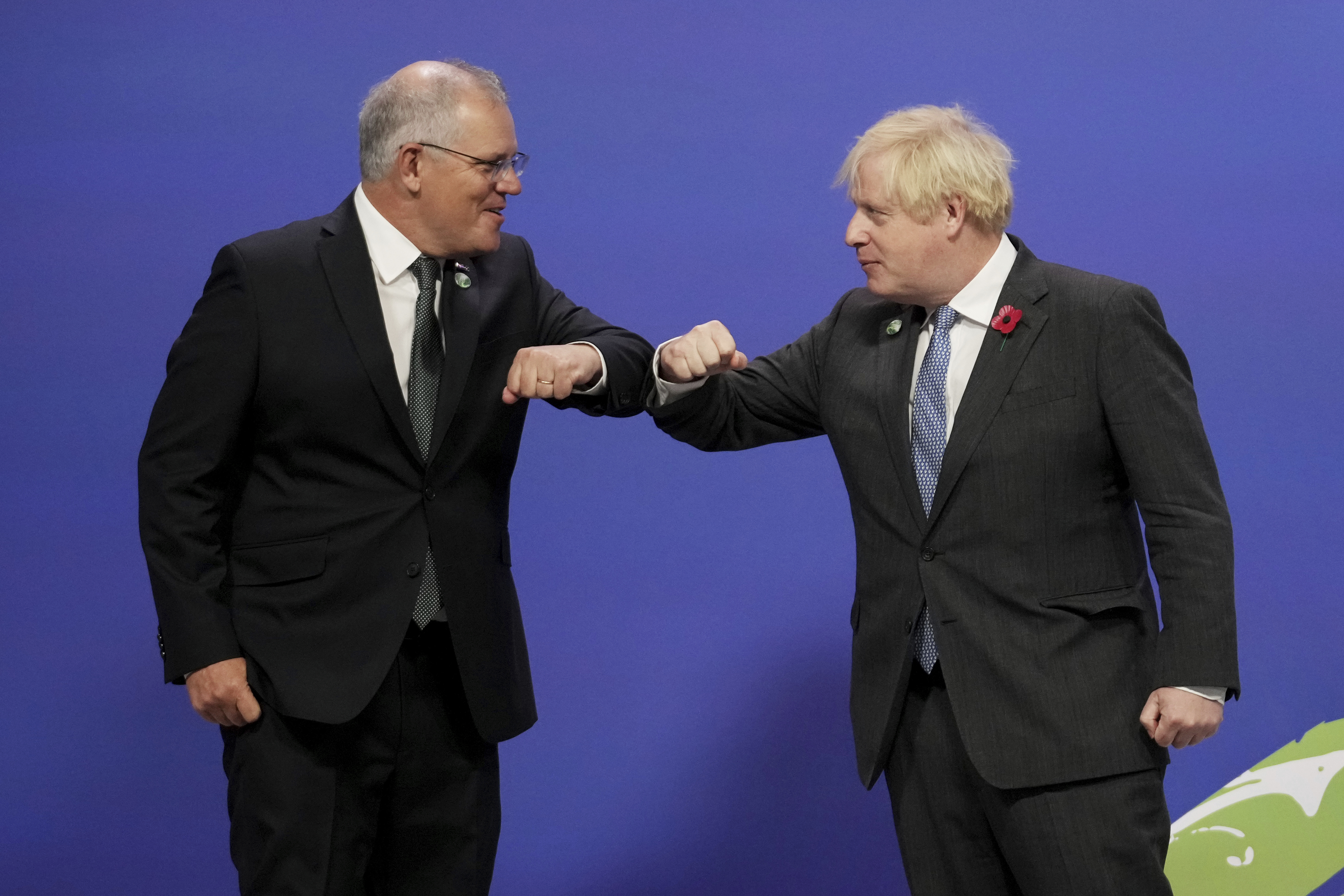
Britain's leader struck a gloomy note on the eve of the conference, after leaders from the Group of 20 major economies made only modest climate commitments at their summit in Rome this weekend.
After Mr Johnsons, scores of other leaders will traipse to the podium Monday and Tuesday at crucial international climate talks in Scotland and talk about what their country is going to do about the threat of global warming.
From US President Joe Biden to Seychelles President Wavel John Charles Ramkalawan, they are expected to say how their nation will do its utmost, challenge colleagues to do more and generally turn up the rhetoric.
The biggest names, including Mr Biden, Mr Johnson, India's Narendra Modi, France's Emmanuel Macron and Ibrahim Solih, president of hard hit Maldives, will take the stage Monday.
And then the leaders will leave.
The idea is that they will do the big political give-and-take, setting out broad outlines of agreement, and then have other government officials hammer out the nagging but crucial details. That's what worked to make the historic 2015 Paris climate deal a success, former UN Climate Secretary Christiana Figueres told The Associated Press.
"For heads of state, it is actually a much better use of their strategic thinking," Ms Figueres said.
READ MORE: Man in 'Joker' costume stabs 17 people on Tokyo train
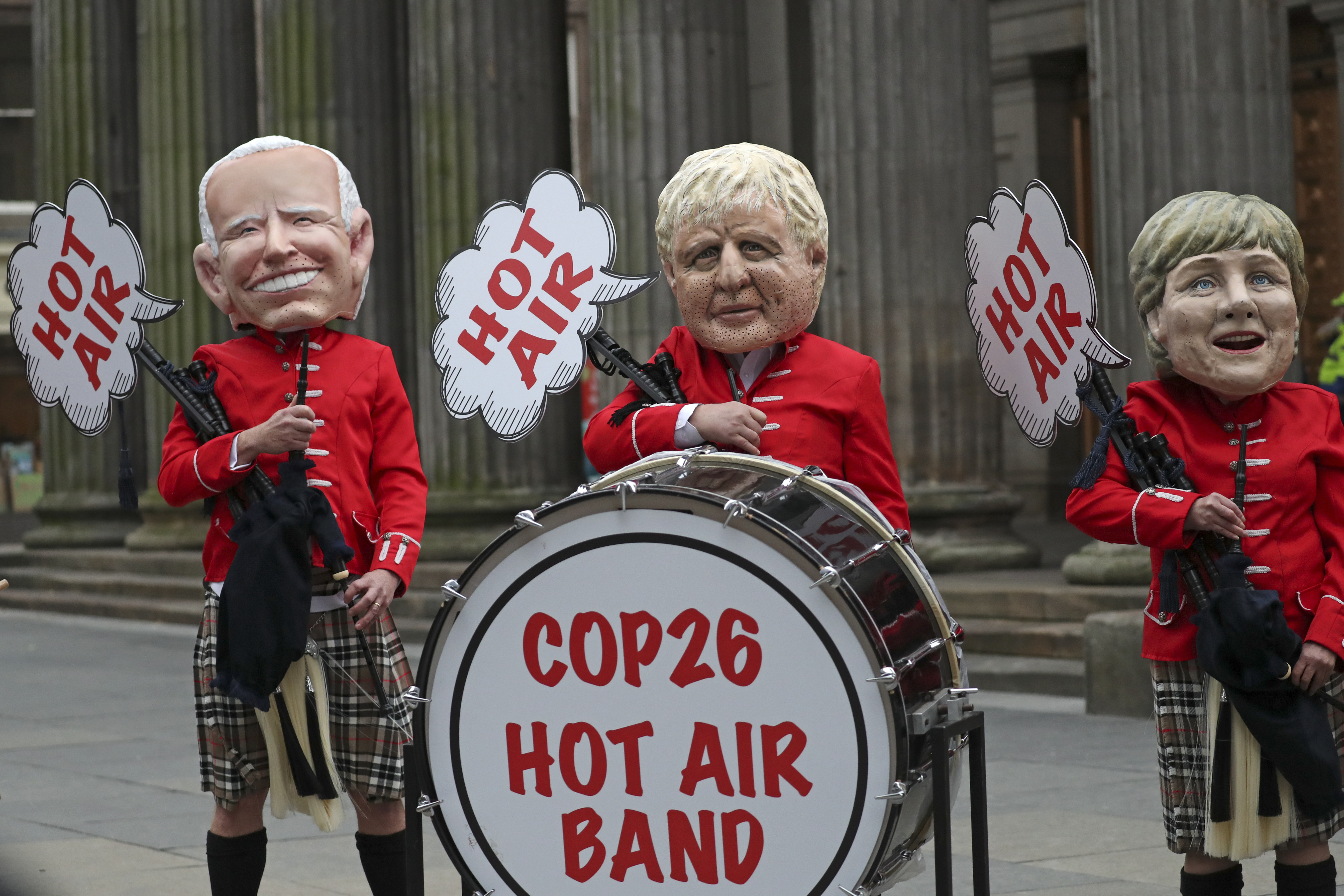
In Paris, the two signature goals — trying to limit warming to 1.5 degrees since pre-industrial times and net zero carbon emissions by 2050 — were created by this leaders-first process, she said. In the unsuccessful 2009 Copenhagen meeting, the leaders swooped in at the end.
Thousands lined up in a chilly wind in the Scottish city of Glasgow on Monday to get through a bottleneck at the entrance to the venue. But what will be noticeable are a handful of major absences at the summit known as COP26.
Xi Jinping, president of top carbon-polluting nation China, won't be in Glasgow. Ms Figueres said his absence isn't that big a deal because he isn't leaving the country during the pandemic and his climate envoy is a veteran negotiator.
Mr Biden, however, has chided China and Russia for their less than ambitious efforts to curb emissions and blamed them for a disappointing statement on climate change from the Group of 20 summit of the world's largest economies in Rome this weekend.
READ MORE: Simon O'Donnell's Melbourne Cup form guide with tips, jockeys and odds
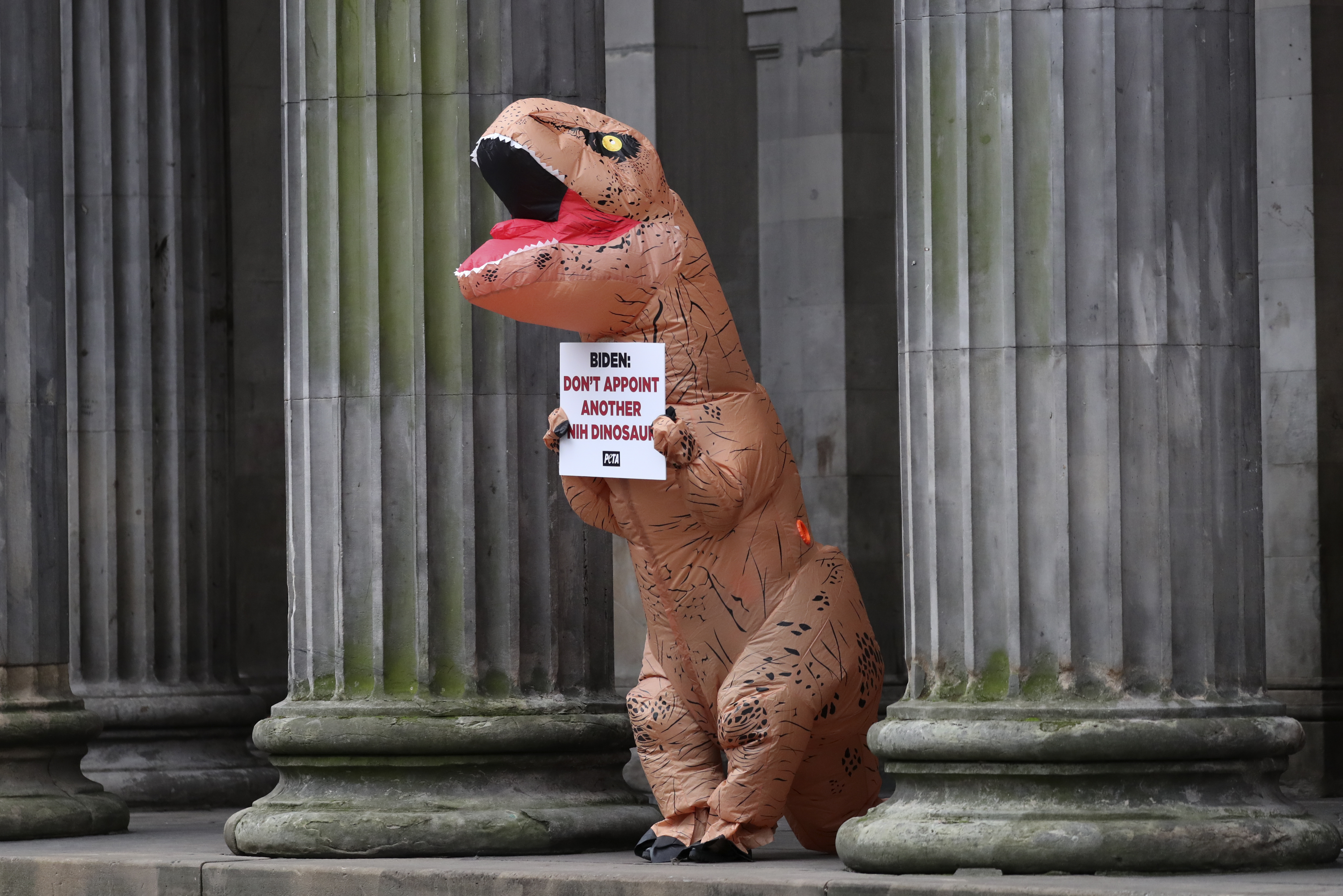
Perhaps more troublesome for the UN summit is the absence of several small nations from the Pacific islands that couldn't make it because of COVID-19 restrictions and logistics. That's a big problem because their voices relay urgency, Ms Figueres said.
In addition, the heads of several major emerging economies beyond China are also skipping the summit, including those from Russia, Turkey, Mexico, Brazil and South Africa.
That leaves India's Modi the only leader present from the so-called BRICS nations, which account for more than 40 per cent of global emissions.
Kevin Conrad, a negotiator from Papua New Guinea who also chairs the Coalition for Rainforest Nations, said he's watching the big carbon-polluting nations.
"I think it's really important for the United States and China to show leadership as the two largest emitters," he said.
"If both of them can show it can be done, I think they give hope to the rest of the world."
Scientists say the chances of meeting the goal to keep global temperatures from rising by more than 1.5 degrees this century are slowly slipping away.
READ MORE: Secret partner sent message urging Gladys Berejiklian to get second phone
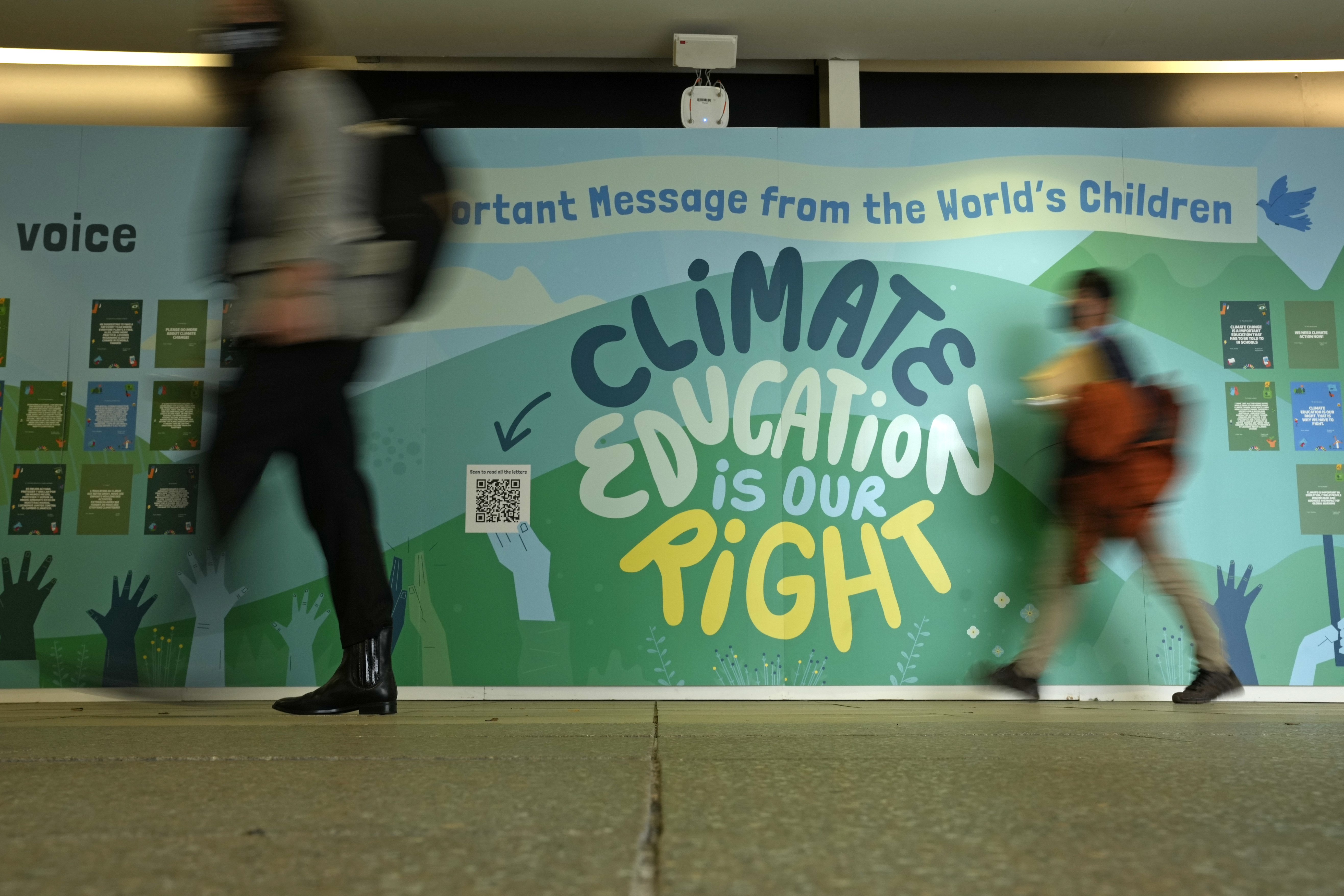
The amount of energy unleashed by a 2.7-degree warming would melt much of the planet's ice, raise global sea levels and greatly increase the likelihood and intensity of extreme weather, experts say.
But before the UN climate summit, the G20 leaders, at the close of their meeting, offered vague climate pledges instead of commitments of firm action, saying they would seek carbon neutrality "by or around mid-century."
The countries also agreed to end public financing for coal-fired power generation abroad, but set no target for phasing out coal domestically — a clear nod to China and India.
The G20 countries represent more than three-quarters of the world's climate-damaging emissions and summit host Italy, and Britain, which is hosting the Glasgow conference, had been hoping for more ambitious targets coming out of Rome.
India, the world's third-biggest emitter, has yet to follow China, the US and the European Union in setting a target for reaching "net zero" emissions. Negotiators are hoping Mr Modi will announce such a goal in Glasgow.
The Biden administration has tried hard to temper expectations that two weeks of climate talks will produce major breakthroughs on cutting climate-damaging emissions.
Rather than a quick fix, "Glasgow is the beginning of this decade race, if you will," Mr Biden's climate envoy, John Kerry, told reporters on Sunday.
from 9News https://ift.tt/3w2mbKs
via IFTTT


0 Comments